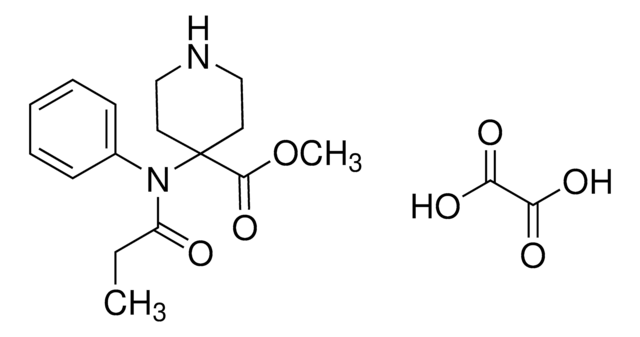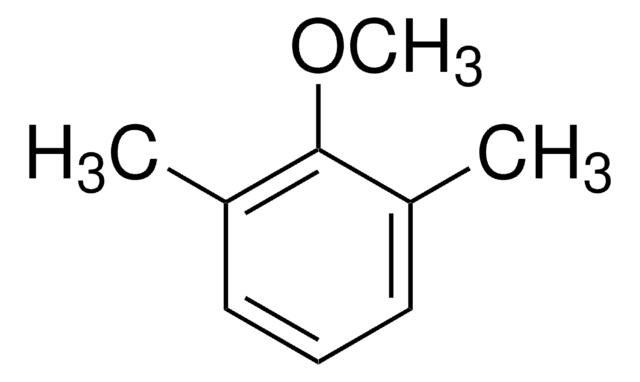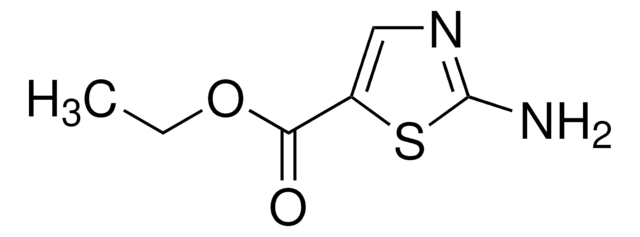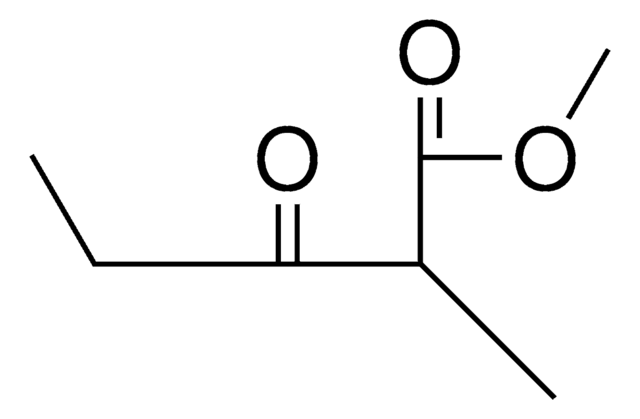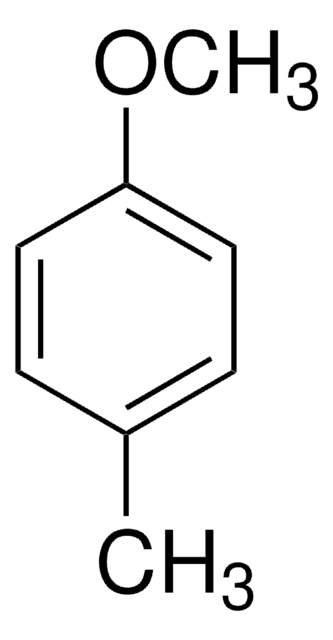137480
2,5-Dimethylanisole
99%
Iniciar sesiónpara Ver la Fijación de precios por contrato y de la organización
About This Item
Fórmula lineal:
(CH3)2C6H3OCH3
Número de CAS:
Peso molecular:
136.19
Número CE:
Número MDL:
Código UNSPSC:
12352100
ID de la sustancia en PubChem:
NACRES:
NA.22
Productos recomendados
Nivel de calidad
Ensayo
99%
Formulario
liquid
índice de refracción
n20/D 1.514 (lit.)
bp
190 °C (lit.)
densidad
0.965 g/mL at 25 °C (lit.)
cadena SMILES
COc1cc(C)ccc1C
InChI
1S/C9H12O/c1-7-4-5-8(2)9(6-7)10-3/h4-6H,1-3H3
Clave InChI
SJZAUIVYZWPNAS-UHFFFAOYSA-N
Categorías relacionadas
Descripción general
2,5-Dimethylanisole acts as photoexcited donor and undergoes different non-radiative transitions in the presence of the acceptor 2-nitrofluorene in ethanol rigid glassy matrix at 77K.
Aplicación
2,5-Dimethylanisole was used to investigate the temperature dependence of spin-rotational relaxation rate of methyl C-13 in 2, 5-dimethylaniline.
Código de clase de almacenamiento
10 - Combustible liquids
Clase de riesgo para el agua (WGK)
WGK 3
Elija entre una de las versiones más recientes:
¿Ya tiene este producto?
Encuentre la documentación para los productos que ha comprado recientemente en la Biblioteca de documentos.
C13 NMR Relaxation study of Internal Rotation of Methyl Groups-Spin-Rotational Relaxation of Methyl Carbon-13 in 2-bromo-p-xylene, 2, 5-dimethylanisole and 2, 5-dimethylaniline.
Lee JW, et al.
Bull. Korean Chem. Soc., 8(2), 73-79 (1987)
Investigations on the nature of non-radiative transitions from excited singlet and triplet states of dimethyl substituted phenols in the presence of acceptor 2-nitrofluorene at 77K.
Sinha S and Ganguly T.
Journal of Photochemistry and Photobiology A: Chemistry, 117(2), 83-90 (1998)
Ya-Nan Zhang et al.
Journal of hazardous materials, 358, 216-221 (2018-07-11)
Pharmaceuticals are a group of ubiquitous emerging pollutants, many of which have been shown to undergo efficient photolysis in the environment. Photochemically produced reactive intermediates (PPRIs) sensitized by the pharmaceuticals in sunlit natural waters may induce photodegradation of coexisting compounds.
Manabu Nakazono et al.
Clinica chimica acta; international journal of clinical chemistry, 436, 27-34 (2014-05-13)
Various styrylbenzene compounds were synthesized and evaluated as mainly Aβ amyloid sensors. These compounds, however, cannot be used for detecting amyloid deposition in peripheral nerves because of the inherent sensitivity of the compounds. These compounds often generate false positives especially
Nuestro equipo de científicos tiene experiencia en todas las áreas de investigación: Ciencias de la vida, Ciencia de los materiales, Síntesis química, Cromatografía, Analítica y muchas otras.
Póngase en contacto con el Servicio técnico